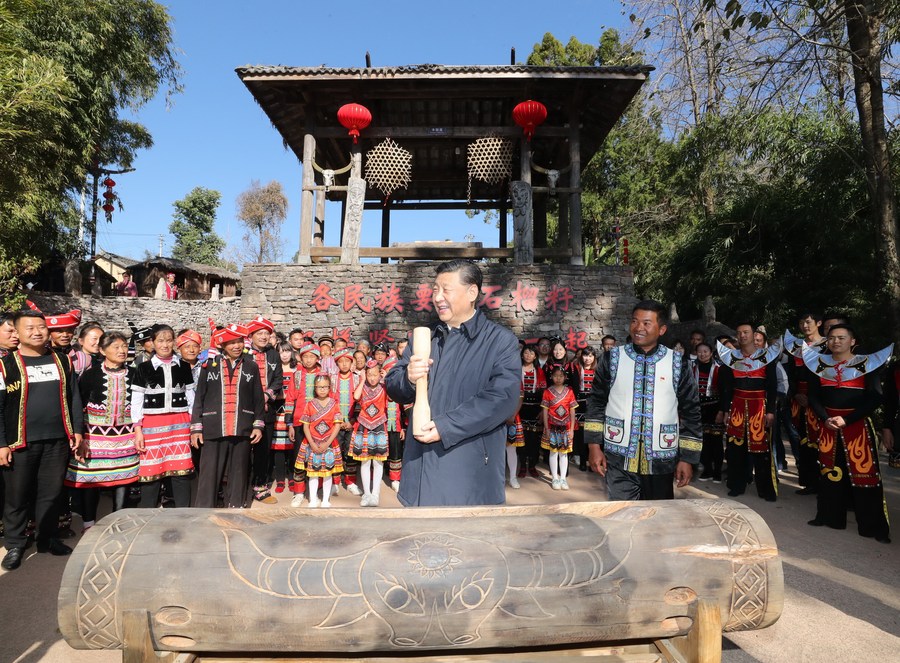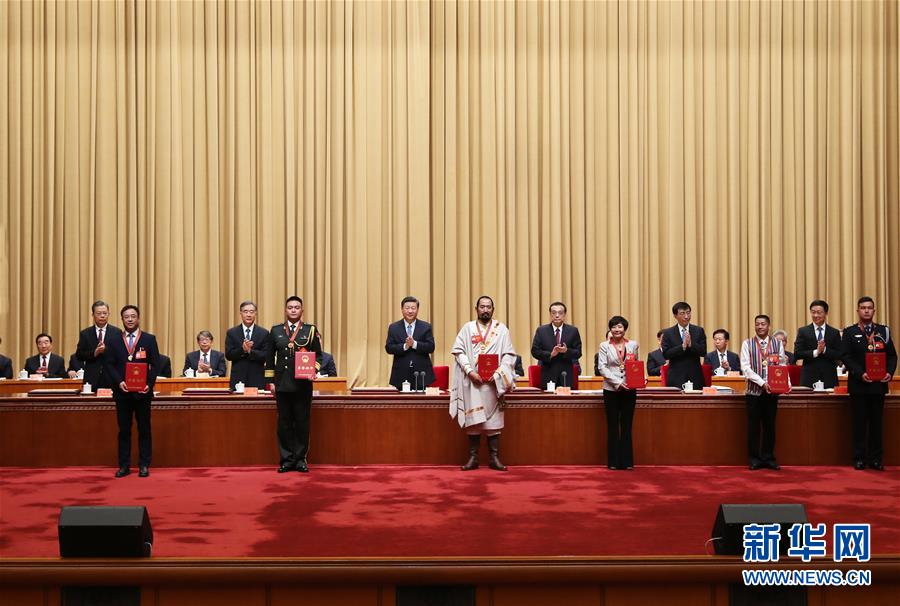On July 1, 2021, China announced it had achieved building a moderately prosperous society, or Xiaokang, in all respects. In the traditional Confucian sense, Xiaokang describes a state whereby, although there is imperfection, everyone is adequately provided for.
Making "everyone" adequately provided for is not an effortless task in China, a country with 56 ethnic groups. Besides Han, who make up over 90 percent of China's population, there are 55 ethnic minority groups in the country, each with their costumes, festivals and customs.
Not a single ethnic group should be left behind, be it in the nation's drive to eliminate absolute poverty, build a moderately prosperous society in all respects or build a modern socialist country, according to Chinese President Xi Jinping.
Tough battle against poverty in ethnic areas
The 18th National Congress of the Communist Party of China (CPC) in 2012 set the goal of completing the building of a moderately prosperous society in all respects by 2020, with the elimination of absolute poverty as the most important target.
To win a comprehensive victory in poverty alleviation, ethnic minority areas are the hardest nut to crack. Restricted by historical, social and natural conditions, the economic and social development of many ethnic minority areas is lagging.
According to official statistics, by 1994 the impoverished parts of ethnic minority areas were mainly in western China and among the 348 ethnic minority autonomous counties across the country, 257 were poverty-stricken counties and given priority in aid.
The Chinese Government lays stress on anti-poverty work in the impoverished parts of ethnic minority areas and extends to these areas special preferential policies and measures.
From 2016 to 2020, the data shows that the central government allocated 241.52 billion yuan in special poverty alleviation funds to eight ethnic-minority provinces and autonomous regions, accounting for 45.5 percent of the national total.

Chinese President Xi Jinping beats a wooden drum of the Wa ethnic group three times to bless the coming year in Sanjia Village in Tengchong City, southwest China's Yunnan Province, January 19, 2020. /Xinhua
Chinese President Xi Jinping beats a wooden drum of the Wa ethnic group three times to bless the coming year in Sanjia Village in Tengchong City, southwest China's Yunnan Province, January 19, 2020. /Xinhua
Among the 55 ethnic minorities, the 28 smallest with a population of less than 300,000 were not left behind as well.
The Program to Support the Development of Ethnic Groups with Less Population was written into China's 12th Five-Year Plan (2011-15) with the aim of providing support to the compact communities of 28 ethnic groups and a focus on 2,119 villages.
Efforts have paid off. In February 2021, Xi declared that China had eliminated absolute poverty, lifting all the remaining 98.99 million rural poor out of poverty.
From 2016 to 2020, the number of the poor population dropped by 15.6 million in the country's five autonomous regions – Inner Mongolia, Guangxi, Tibet, Ningxia and Xinjiang – and three provinces with a large multi-ethnic population – Guizhou, Yunnan and Qinghai, said a white paper issued in April by the State Council Information Office. The white paper is titled "Poverty Alleviation: China's Experience and Contribution".
The paper stated that extreme poverty had been eliminated in all 28 of the ethnic minority groups with a small population.
'Unite together like pomegranate seeds'
China exercises the ethnic policy system featuring equality, unity, regional ethnic autonomy, and common prosperity for all ethnic groups.
Applauding the achievements China has made in the field of ethnic affairs over the past years, Xi said implementing the system of regional ethnic autonomy as a basic policy of the CPC has entitled ethnic minorities equality to exert political rights for the first time in history.
"People of all ethnicities within the Chinese nation should closely unite together like pomegranate seeds to strive for common prosperity and development of a more diversified and cohesive community with a shared future," Xi said at a gathering to honor national role models for ethnic unity and progress in September 2019.
"The Chinese nation is closely united like the seeds of a pomegranate."
This is not the first time he has used the expression to talk about ethnic unity in China, which reflects that ethnic unity is of great importance in the country's handling of ethnic issues.

Chinese President Xi Jinping and other senior leaders present awards to representatives of honorees at a gathering to honor national role models for ethnic unity and progress in Beijing, September 27, 2019. /Xinhua
Chinese President Xi Jinping and other senior leaders present awards to representatives of honorees at a gathering to honor national role models for ethnic unity and progress in Beijing, September 27, 2019. /Xinhua
China's ethnic policy is in line with the actual situation on the ground and has fostered unity and harmonious coexistence among all ethnic groups, according to a white paper on the country's ethnic policy and prosperity and development shared by all ethnic groups.
The country's newest census in May indicates steady growth in the ethnic minority population. China's total population of minority ethnic groups stands at 125.47 million, up by 11.68 million, or 10.26 percent, compared to the figure in 2010 when the last census was conducted.
Meanwhile, from 2013 to 2019, GDP and per capita income in both urban and rural areas in the eight ethnic minority provinces and autonomous regions grew faster than the national average. Poverty among over 30 million people was reduced, with the incidence rate dropping from 20.8 percent to 0.79 percent, according to the country's Ethnic Affairs Commission.
Looking ahead, as China embarks on a new journey toward the second centenary goal of fully building a modern socialist country, the phrase "not a single ethnic group should be left behind," which is always reiterated by Xi, will undoubtedly continue to be practiced.
(Cover: File photo shows women making toast during a folk fair, part of a traditional New Year celebration of the Dong ethnic group in Rongjiang County, southwest China's Guizhou Province. /Xinhua)

